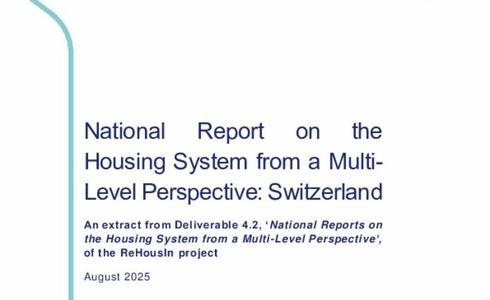National report on the housing system from a multi-level perspective: Switzerland
An extract from Deliverable 4.2 “National reports on the housing system from a multi-level perspective”
Switzerland is a country of tenants with the lowest homeownership rate in Europe. Housing policy at the national level is rather weak, and the responsibility for housing primarily lies with municipalities and cantons. The Swiss housing system strongly relies on the private market for the provision of housing, with cooperative and state-provided social housing occupying a marginal role. Regarding the trajectory of the Swiss housing system in the direction of decommodification or (re-)commodification, there have not been substantial changes since the 1990s at national level. A compulsory and de-commodifying value capture recovering at least 20% of planning gains was introduced in 2014.
On the other hand, there is less financial support by the state for affordable rental housing, and even though there is rent regulation, its enforcement is weak and the modest protection of tenants from rental contract cancellations is creating major hardships to tenants in a market that is increasingly dominated by financialised actors. The high land and housing prices, coupled with environmental and energy policies that encourage densification and energy refurbishments, contribute to the demolition of affordable housing and its replacement with more expensive housing, particularly in rapidly growing large cities.

Publication date:
Languages: English